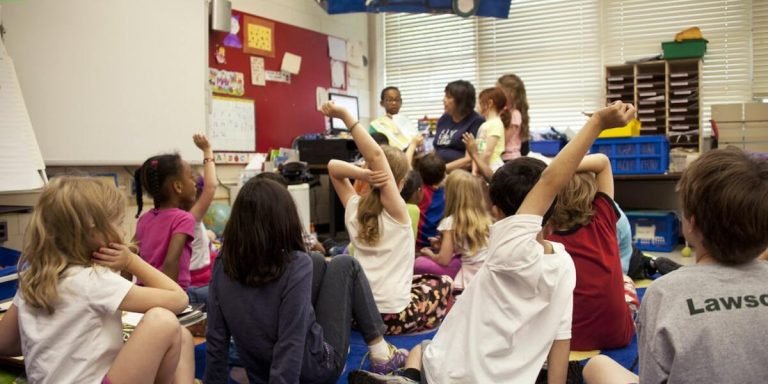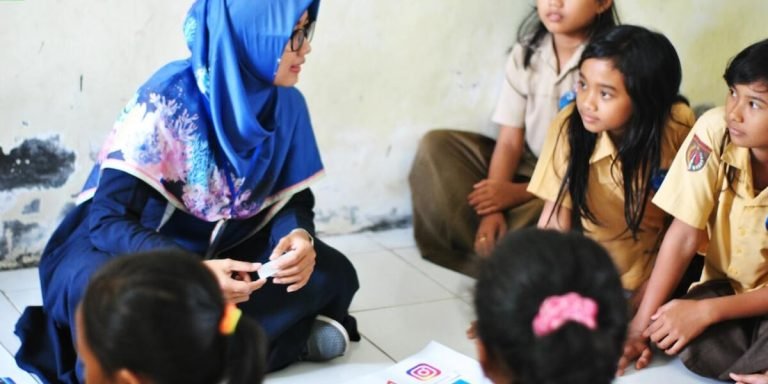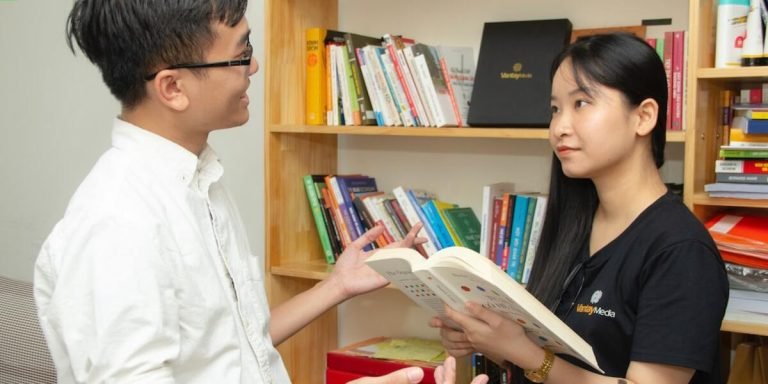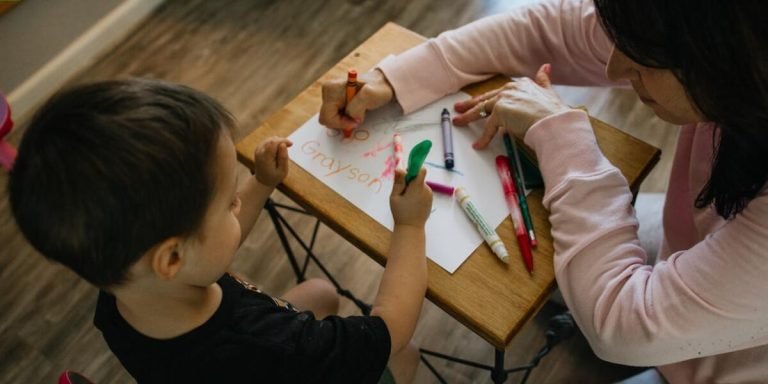Parents as Teachers: The Essential Role in Childhood Education
Childhood education is a critical phase in every child’s cognitive, emotional, and social development. During these formative years, the role of “parents as teachers” can significantly influence children’s learning process. In fact, parents play an integral part not just as caregivers but also as primary educators that shape their little one’s perception of the world.
The contribution of parents to early childhood education cannot be underestimated or overlooked; it includes teaching key values like respect for others and imparting life skills such as empathy and resilience. As initial role models for their children during this developmental stage, they stimulate curiosity while guiding them through various learning experiences which build on knowledge pacesetters for future formal schooling.
Did you know?
A captivating fact to consider is that research from the National Association for Education of Young Children shows parents involved in their children’s education can boost their academic performance by 50%. Hence, parenting significantly doubles a child’s chances at succeeding academically.
The Role of Parents in Early Childhood Education
In today’s complex educational landscape, parents serve a crucial role in early childhood education. They are not just ‘parents’, they transform into the first teachers for their young ones. Their involvement creates a foundation of learning that sets children on an advantageous path to academic success.
This unique position allows parents to tailor educational experiences according to individual needs and interests of their child at home, fostering an environment conducive for growth and development even before formal schooling commences. From introducing numbers and alphabets with playful activities or reading bedtime stories, parental teaching forms intricate connections between playfulness and academics which makes learning fun rather than forced.
However, this isn’t about replacing professional educators; it’s more about augmenting what children learn at school by reinforcing concepts back home providing continuity along the student-learning journey. Hence establishing clear communication channels between teachers & parents becomes imperative so both parties can work together towards shared goals – shaping well-rounded individuals who will navigate life successfully beyond classrooms.
Understanding Parental Influence on Child Development
Fostering your child’s learning from an early age is a monumental task, one that as parents you are naturally inclined to undertake. The concept of “parents as teachers” has become more prevalent in 2023 than ever before due to the increasing recognition of parental influence on child development.
As key players in the field of their children’s education, parents perform multifarious roles and responsibilities, all directed towards fostering optimal growth for their little ones. One cannot underestimate how crucial these years are – forming the bedrock upon which further knowledge can solidly be built.
The first aspect underpinning this effort is interaction with your kids. Conversations birth curiosity – inspiring them to ask questions and seek answers help shape their intellectuality progressively. Posing open-ended inquiries or talking about day-to-day activities feeds young minds’ inexhaustible quest for understanding everything around them.
Next comes reading together: A proven method enhancing linguistic skills while opening doors into uncharted worlds filled with imagination and creativity- breeding grounds of fertile youthful thinking!
Following closely behind lies active playtime engagement -an underrated but equally vital partake being parent educators! Gears like puzzles or alphabet blocks not only entertain but also stimulate cognitive abilities amidst fun-filled moments ensuring a seamless integration between enjoying childhood gaiety yet growing ingeniously!
Strategies for Effective Learning Support at Home
Early childhood education isn’t confined to classroom walls, it extends into the everyday lives of young learners. Parents are a child’s first teachers and they play an instrumental role in their formative years. The keyword here is “parents as teachers”, emphasizing that parental involvement significantly influences their early development and learning experience.
The trend in 2023 continues to encourage parents to actively participate in fostering educational environments at home. Use these strategies for effective learning support in your own haven:
1. **Establish Learning Goals**: Setting clear objectives helps guide activities towards productive areas of focus.
2. **Create Engaging Spaces**: Your home should stimulate curiosity – spaces dedicated for reading, art or science experiments incite interactive engagement.
3. **Implement Routine Structure**: Consistency reduces chaos! A structured daily routine offers stability while nurturing time management abilities.
4. **Promote Emotional Well-being** : Encourage conversation about thoughts and feelings by creating emotionally safe spaces; this enhances social skills over time.
5.*Utilize technological tools*: Make smart choices when combining traditional methods with digital resources like apps or online platforms which offer personalized lessons tailored to suit individual capabilities.
Remember, parents as teachers means equipping yourself with knowledge relevant to your child’s developmental stage plus staying updated on current teaching trends and materials – every step counts when building strong academic foundations!
Effective application of these strategies will demonstrate how well-equipped homes could essentially serve as dynamic classrooms too!
Building a Strong Relationship Between Educators and Families
In the education journey of a child, both parents and teachers play pivotal roles. While educators bring their professional knowledge to create an enriching learning environment for children, parents offer consistent support by creating conducive environments at home that reinforce what’s taught in school. Therefore, building a strong relationship between these two entities can significantly enhance the effectiveness of education.
The year 2023 marks considerable advancements in educational systems globally; however, the principle value remains unchanged – collaboration enhances performance! In this regard “Parents as Teachers” strategy underlines mutual understanding and constant communication between families and schools which is achievable through various methods such as regular parent-teacher meetings or utilizing digital platforms created specifically with this aim.
Seeing Eye-to-eye on fundamental values like discipline methodologies or homework guidelines can prevent any possible miscommunication or misunderstandings while ensuring uniformity across different spheres of influence for the child – school & home. Such alignment helps kids understand expectations better – leading to improved attitude towards studies & overall development.
It requires efforts from both sides: Parents need to be proactive about communicating with teachers regularly about their kid’s progress while educators should keep them informed about academic updates & areas where improvement might be needed.
Stronger relationships indeed build stronger learners which ultimately leads us towards brighter futures!
Creating Collaborative Partnerships with Teachers
1) Regular Communication: It cannot be stressed enough how vital open and frequent communication between educators and parents truly is. Teachers should make it easy for families to contact them and vice versa.
2) Shared Decision Making: When decisions about the child’s education are shared, both parties become equally responsible for outcomes. This not only ensures transparency but builds mutual trust too.
3) Attend School Functions & Meetings: Attending school events or parent-teacher meetings shows your active involvement in the youngster’s learning process – an excellent way to show support towards mentors.
6). Respect Teacher Expertise And Experience – While viewpoints may differ at times, respecting each other’s professionalism paves way for more meaningful dialogue benefitting all concerned especially our children.
Communication Techniques to Enhance Parent-Teacher Interactions
Building a successful educational journey for children requires the forging of strong relationships between educators and families. An integral part of this relationship is effective communication that includes parents as teachers, creating an environment where education isn’t confined only to school premises but extends into homes.
One rule in enhancing parent-teacher interactions is taking on proactive communication techniques. Instead of waiting for scheduled meetings or parent’s day at school, utilize all available tools – emails, texts, online platforms – to keep them updated regularly about their child’s progress or any concerns you may have regarding their learning trajectory.
Involving parents directly with classroom activities can provide clear insights into teaching methodologies and curriculum mandates—making it much more relatable when they assist kids at home with homework assignments or project work allows for seamless continuation from classrooms to living rooms so there are no loose ends left untied.
Trust forms the cornerstone of any enduring relationship; hence transparency should be encouraged through open channels of dialogue where both parties feel comfortable expressing opinions without fear of criticism while still respecting professional boundaries set by roles each individual plays within this framework.
Navigating Challenges in the Parent-Educator Dynamic
The Parent-Educator dynamic is a crucial axis upon which the wheel of successful childhood education rotates. For parents, it’s often a challenging landscape to navigate as they transition from being solely caregivers to becoming active supporters in their children’s educational journey. In 2023, with the myriad changes that have redefined traditional learning parameters due to technology advances and societal shifts, these challenges are more pronounced than ever.
Parents serve not just as nurturers but also educators in their children’s lives – molding young minds even before formal schooling begins. This dual role magnifies when situations call for home-schooling or remote learning scenarios – realities made commonplace by unprecedented global events like Covid-19. Hence, understanding how significant this parent-teacher relationship works become vital for encouraging open communication lines and fostering effective collaborations between both parties.
Nowadays ‘parents-as-teachers’ approach has been highlighted significantly considering its influence on child development milestones including cognitive skills improvement and emotional intelligence strengthening among others. As partners in imparting knowledge and values, parents must work hand-in-hand with professional educators while continuing nurturing an environment conducive for learning at home.
However trivial it may seem initially; small acts indeed create mighty impacts over time such as helping out with homework routinely can stimulate questioning spirit hence enhancing critical thinking capabilities amongst youngsters steadily!
Addressing Common Obstacles in Supporting Student Success
Active engagement between parents and educators is a critical component in driving student success. However, this collaboration often encounters obstacles that can create misunderstandings or hinder productive cooperation. By understanding what these challenges are, both parties can devise strategies to navigate them effectively.
One common obstacle seen today arises from unclear communication channels. This difficulty may present itself in the form of ineffective modes of message transmission used by teachers for reaching out to parents about their child’s academic performance or school activities. In 2023, with technology at our fingertips, it would be prudent for educational institutions to make use of multiple methods such as emails, text messages and online portals where parents could access updates on their children’s progress regularly.
Another challenge lies within differing expectations between home and school environments regarding rules and behavioral standards. Parents may have certain norms set up at home which might not align with those established by teachers in classrooms leading to conflicting instructions confusing young minds.
The third hurdle surrounds parental involvement directly impacting teaching methodologies exercised inside classrooms – few demand more control over how lessons are communicated while others take a backseat entrusting complete responsibility upon schools confused under the banner “parents as teachers”. Giving due respect to each other’s roles without infringing boundaries will ensure smoother functioning promoting effective learning experiences.
Lastly we encounter lack of mutual trust hampering the parent-educator dynamic significantly affecting students ultimately resulting into low self-confidence deterring personal growth further down the line influencing future career choices substantially.
Cultivating Resilience and Adaptability in Educational Settings
Resilience and adaptability are two key skills that children need to develop in order to thrive, not only academically but also personally. The educational landscape has drastically changed over time due to the rapid advances of technology and shifting societal norms which makes these attributes essential for any future success.
The role “parents as teachers” plays is crucial when it comes to fostering this resilience and adaptability among children. Parents can impart a deeper understanding of their child’s needs, helping educators tailor their teaching techniques accordingly. This creates an inclusive environment conducive for learning where challenges become opportunities rather than setbacks.
Developing resilience involves building self-esteem and confidence within youngsters while reframing difficulties as stepping stones towards growth instead of obstacles hindering progress. ‘Parents as teachers’ may consider collaborative problem-solving strategies involving kids directly – reinforcing perseverance while appreciating effort despite outcomes.
Adaptability on the other hand requires flexibility – being able move fluidly from one task or situation into another without getting overwhelmed by change itself could be demonstrated through modelling behaviour effectively during daily tasks like homework timings changes etcetera around 2023 schedule shifts maybe?
Conclusion
In essence, recognizing the integral role that parents play as teachers in their child’s foundational years is pivotal towards early childhood education. Their function goes beyond feeding and clothing; they are primary educators helping shape the future leaders of society. By nurturing cognitive abilities at home, “parents as teachers” end up enriching school curriculums and consequently foster a more comprehensive learning environment.
Don’t miss out on this golden period to make a significant difference in your kid’s educational journey! To aid you further along this road less treaded upon, our website hosts an extensive collection of resources revolving around educating children. Whether it’s understanding different teaching strategies or seeking support from fellow parent-educators – dive into our treasure trove for more invaluable insights about raising resilient learners.







